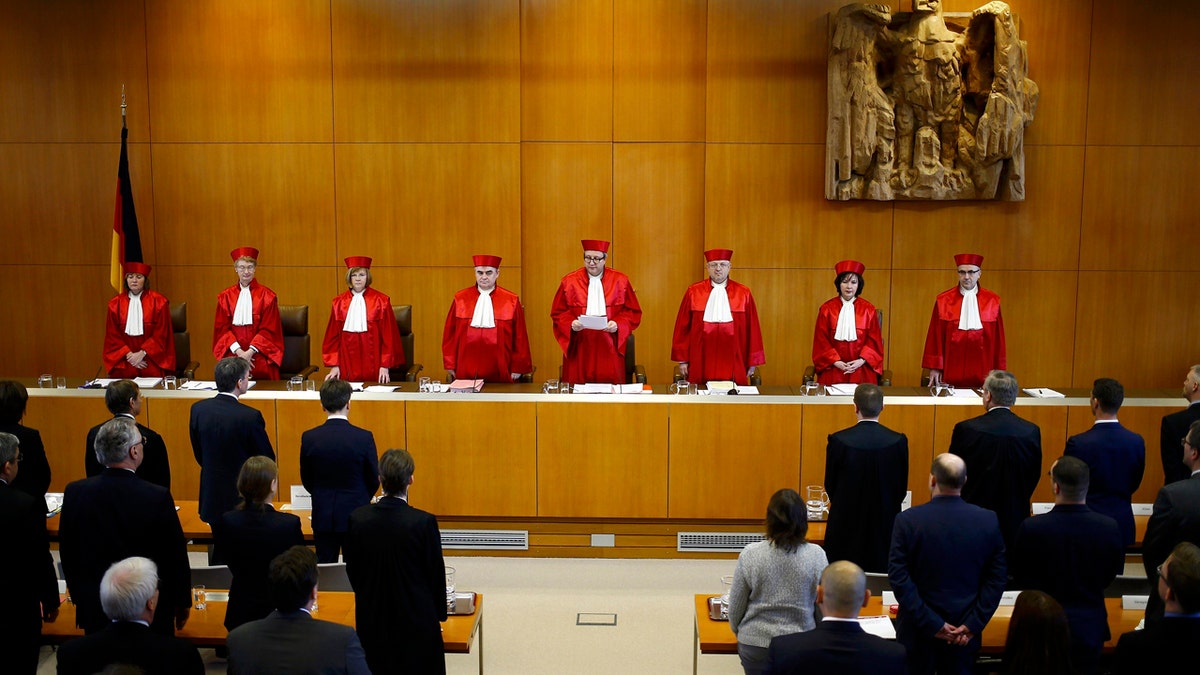
The judges of the German Constitutional Court, from left, Christine Langenfeld, Doris Koenig, Monika Hermanns, Peter Mueller, presiding judge Andreas Vosskuhle, Peter M. Huber, Sibylle Kessal-Wulf and Ulrich Maidowski announce that they rejected a bid of banning the far-right NPD party in Karlsruhe, southern Germany, Tuesday, Jan. 17, 2017. (Kai Pfaffenbach/Pool Photo via AP)
Germany’s top court Tuesday rejected a bid to ban the extreme-right National Democratic Party, arguing that while the party resembles Adolf Hitler’s Nazi party, it poses no serious threat to German democracy.
The ruling comes after the German parliament’s upper house had filed a plea to ban the party in 2013, arguing that the NPD, the party’s acronym in German, espouses neo-Nazi views in violation of Germany’s constitution. The NPD itself argued that a ban would be incompatible with democracy.
Germany’s constitutional court said that the NPD is itself an anti-democratic party.
“The NPD intends to replace the existing constitutional system with an authoritarian national state that adheres to the idea of an ethnically defined ‘people’s community’,” said Andreas Vosskuhle, president of the constitutional court. “Its political concept disrespects human dignity and is incompatible with the principle of democracy.”
Related stories...
But the court’s eight judges unanimously ruled that the legal requirements for banning the party weren’t met because the party had no means to achieve its anti-constitutional goals. Mr. Vosskuhle said there was “a lack of specific and weighty indications suggesting that this endeavor will be successful.”
Support for the NPD has been on the decline after a surge in popularity in the 1990s. The party today has less than 6,000 members, lost its last representation in a regional parliament last year in the state of Mecklenburg-Western Pomerania and never garnered enough support to win a seat in the federal parliament. It currently has one representative in the European parliament.
The debate over whether to ban the party and Tuesday’s ruling illustrates the difficult task for a democratic state in fighting ideologies that aim to curtail freedom and subvert democracy while preserving the political liberties that a democracy seeks to protect.




















